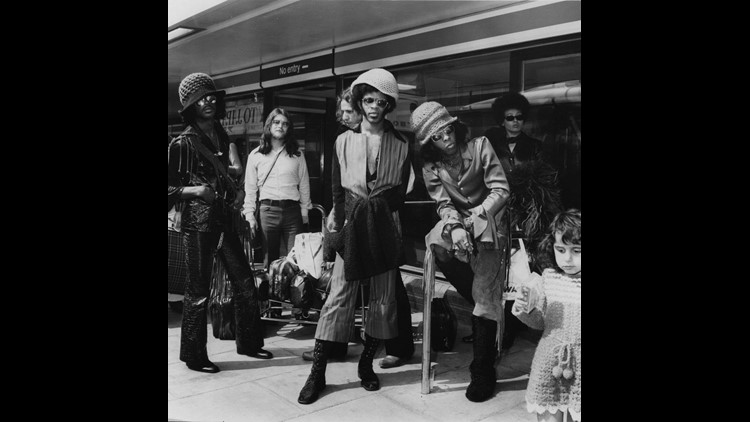Cynthia Robinson, whose brassy, forthright trumpet lit up Sly and the Family Stone songs such as “Dance to the Music,” “Life” and “Hot Fun in the Summertime,” died Monday, the band’s publicist confirmed. She was 71.
The cause of death was cancer, according to a post on her Facebook page.
Robinson cut a distinctive figure in rock ‘n’ roll, even among the distinctive, multiethnic clan that made up Sly and the Family Stone. She was a female trumpeter, a position that set her apart, especially in the late ’60s and early ’70s when Sly and the Family Stone was one of the dominant groups in pop music.
Her voice was unmistakable. That’s her you hear saying, “Get up and dance to the music” in the opening of “Dance to the Music.”
The group — which consisted of Sylvester “Sly Stone” Stewart, his brother Freddie and sister Rose, Robinson, Larry Graham, Greg Errico and Jerry Martini — pulled from R&B, jazz, psychedelia, old-time music hall (“Hot Fun” had “piano triplets so corny they could have been composed by Booth Tarkington,” rock critic Dave Marsh wrote in “The Heart of Rock and Soul”) and straight-up rock ‘n’ roll.
For a time, they were the biggest band in the country, with an appearance at Woodstock and a trio of No. 1 records, their diversity considered symbolic of the era’s youth.
“The message was as integrated as the music,” Phillip Naylor, a Marquette University professor, told CNN in 2007.
For the band, it was just “family music” — or, to Rose Stone, “truth music.”
“Truth never changes. Truth always sets people free,” she told CNN.
The family did break up, driven apart by drugs and Sly Stone’s sometimes erratic behavior. But Robinson stayed loyal, playing with Sly as well as bassist Larry Graham’s Graham Central Station, according to The Root.
She was on tour this past summer with the Family Stone, and the reclusive Sly even dropped by. The two had a daughter, Sylvette Phunne Stone, who survives her mother. Robinson is also survived by daughter Laura Marie.
Jerry Martini, the Family Stone’s saxophonist, told Billboard she was a pioneer.
“She covered a lot of ground,” he said. “She was the first female trumpet player and the first African-American trumpet player in Rock and Roll Hall of Fame. She wasn’t in the back. She was out front telling you to get up and dance to the music, and she could blow with the best of ’em, always.”



